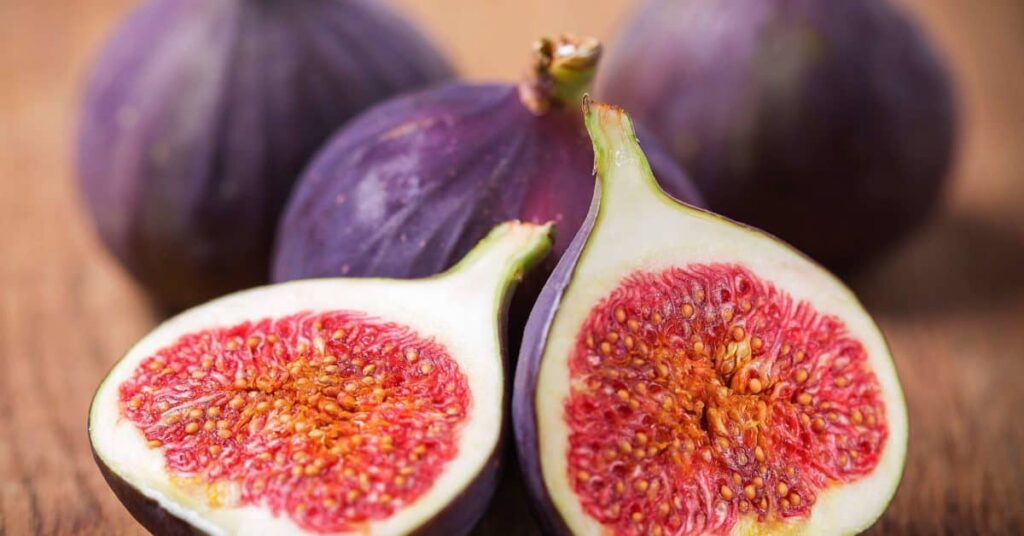Introduction
Figs are a popular and versatile fruit enjoyed by many around the world. However, there is often confusion surrounding their classification as vegan due to the unique pollination process involving a tiny wasp. In this comprehensive guide, we will delve into the intricacies of figs and their place in a vegan diet. We’ll explore the cultivation process, the role of the fig wasp, ethical considerations, nutritional benefits, and provide answers to frequently asked questions to help vegans make informed choices about including figs in their diet.
Understanding Figs
Botanical Background
Figs are the fruit of the Ficus tree, which belongs to the Moraceae family. They are native to the Middle East and Mediterranean regions but are now grown in various parts of the world.
Varieties
There are hundreds of fig varieties, ranging in color, size, and flavor. Common varieties include Black Mission, Brown Turkey, Calimyrna, and Kadota figs.
Cultivation Process
Figs develop from a unique type of flower called a synconium, which requires pollination to mature into fruit. Unlike most fruits, figs have an unusual pollination process involving a tiny wasp.
Fig Wasp Pollination
Mutualistic Relationship
Figs and fig wasps have a mutually dependent relationship, where each species benefits from the other.
Life Cycle
Female fig wasps lay their eggs inside fig flowers, where they pollinate and lay eggs. Once the eggs hatch, the male wasps inseminate the female wasps, and the females collect pollen before leaving the fig to find a new host tree.
Consumption
The fig wasps’ bodies are often broken down and absorbed by the fig as it matures, making them an integral part of the fig’s development.
Ethical Considerations for Vegans
Vegan Perspective
Some vegans may choose to avoid figs due to the involvement of insects in the pollination process.
Personal Ethics
The decision to consume figs depends on an individual’s personal beliefs and ethical considerations regarding insect exploitation.
Alternatives
There are alternative sources of sweetness and nutrients available to vegans, such as other fruits, vegetables, and plant-based sweeteners.
Nutritional Benefits of Figs
Rich in Fiber
Figs are an excellent source of dietary fiber, which supports digestive health and helps regulate blood sugar levels.
Vitamins and Minerals
Figs are packed with essential nutrients, including vitamins A, B, and K, as well as minerals like potassium, calcium, and magnesium.
Antioxidants
Figs contain antioxidants like polyphenols and flavonoids, which help protect cells from damage caused by free radicals.
FAQs About Figs and Veganism
Are figs vegan?
While figs themselves are a plant-based food, some vegans choose to avoid them due to the involvement of fig wasps in the pollination process.
Are all figs pollinated by wasps?
Not all fig varieties require pollination by wasps. Some figs, known as parthenocarpic figs, can develop without pollination and do not contain fig wasp remains.
Can vegans eat figs?
The decision to consume figs is a personal one for vegans. Some vegans choose to avoid figs due to ethical concerns, while others may consider them acceptable as they do not directly harm the insects involved.
How can I tell if a fig contains a wasp?
The presence of fig wasp remains inside a fig is not visible to the naked eye and does not affect the taste or appearance of the fruit. However, some vegans prefer to avoid figs altogether to err on the side of caution.
Are there vegan-friendly alternatives to figs?
Yes, there are plenty of vegan-friendly fruits and sweeteners that can be used as alternatives to figs in recipes, such as dates, raisins, agave nectar, and maple syrup.
Do figs provide any unique nutritional benefits?
Figs are an excellent source of dietary fiber, which may help improve digestion and promote feelings of fullness. They also contain a variety of vitamins, minerals, and antioxidants that contribute to overall health and well-being.
Can figs be part of a balanced vegan diet?
Yes, figs can be enjoyed as part of a balanced vegan diet, providing valuable nutrients and natural sweetness. However, individuals should consider their personal ethics and beliefs when deciding whether to include figs in their diet.
Conclusion
The question of whether figs are vegan is a nuanced one that depends on individual beliefs and ethical considerations. While figs themselves are a plant-based food, their unique pollination process involving fig wasps raises ethical concerns for some vegans. Ultimately, the decision to include figs in a vegan diet is a personal one that each individual must make based on their own values and principles. By understanding the cultivation process, ethical considerations, nutritional benefits, and alternatives, vegans can make informed choices about whether to enjoy figs as part of their dietary repertoire.

